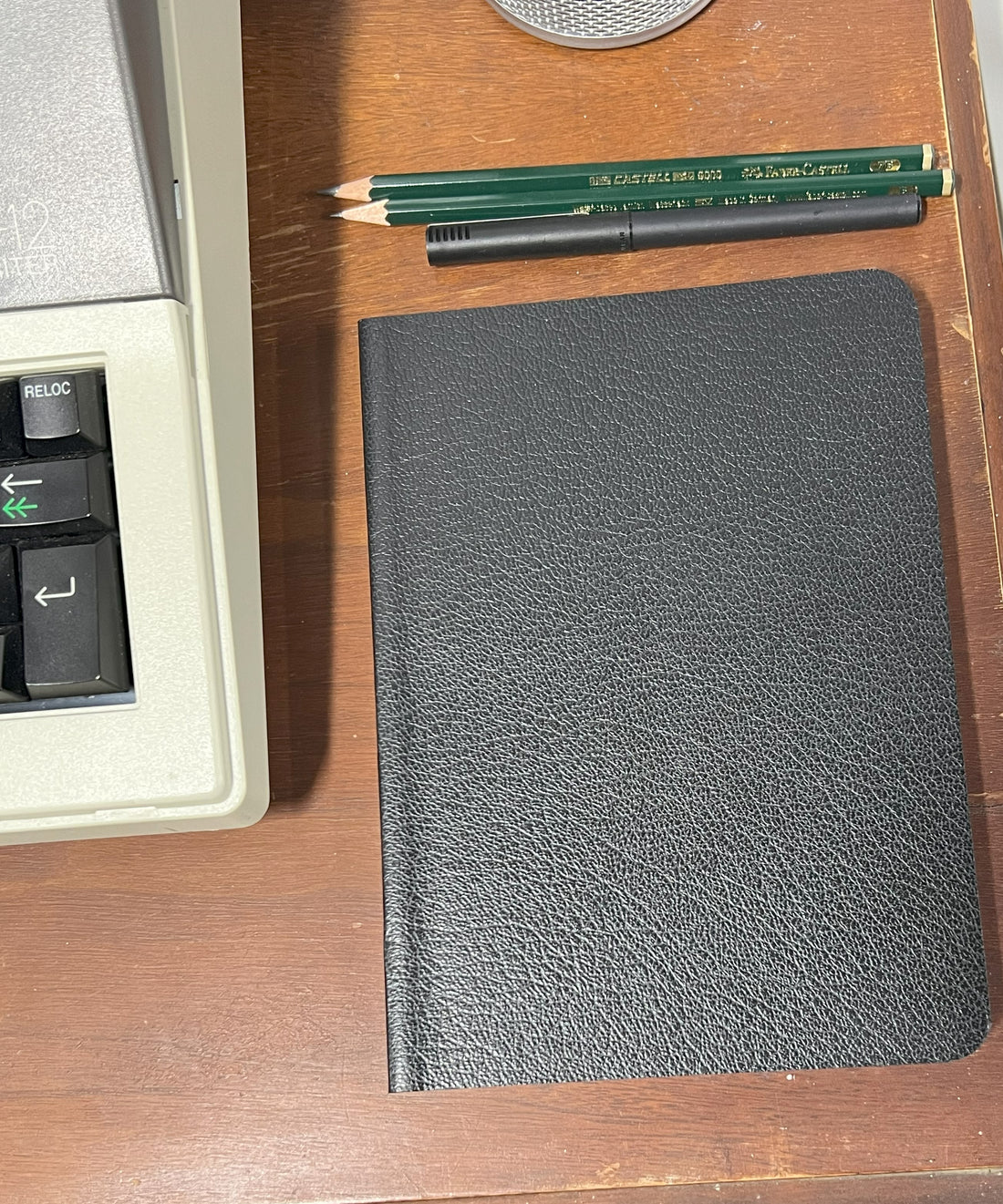
The Mental Health Benefits of Expressive Writing
Share
Hey all,
I know it’s been a while since you’ve heard from me. While I have a list of projects that could explain my recent absence, the truth is that I’ve been doing some personal work—refining my strategy and focusing on what I want this business to become. I launched Wayfinder Journals on 9/1/23 without having much of a clue about what I was doing. A month or so later, and thanks to some early orders, I was able to fine-tune the product and stitch together a rough plan. After the first year, I’m happy to say I’ve kept things afloat and now have clearer goals for the future. It’s been a long-time dream of mine to create something that can positively impact people’s lives, and I built this business from the bottom of my heart with that in mind.
One of the reasons I started making journals is that journaling has been essential to my life. Throughout my childhood, teenage years, and adulthood, there have been countless times when the only way I could make sense of what was happening around me was to write it down and reflect. I’ve struggled with mental illness for most of my life, bringing with it the usual suspects—addiction, fear, ruined relationships, and countless battles with anxiety and depression. Thankfully, I’ve had support from good doctors, a loving family, and close friends. But more often than not, the real work of healing is an inside job.
I’ve learned that true growth often comes from taking an honest look at your thoughts and behaviors. Without the tool of journaling—especially expressive writing—I wouldn’t have been able to quiet the racing thoughts that clutter my mind and gain the clarity needed to work through difficult moments.
Maybe you can relate to some of this, or maybe you can’t, but my goal is to inspire reflection and contemplation in all of us. I believe that dedicating time to reflecting on past experiences or examining our own behaviors and motivations can help us heal from trauma and grow as individuals. Over the past few months, I’ve done a lot of this work, and I return now with a renewed sense of purpose—to share the powerful, and perhaps underappreciated, art of journaling. In the coming months, I plan to blog periodically about how journaling can enhance our lives, help us achieve our dreams, and bring healing.
So, with that mission in mind, let’s dive into my latest blog post: The Mental Health Benefits of Expressive Writing.
What Is Expressive Writing?
Simply put, expressive writing involves writing about personal thoughts, feelings, and experiences in a way that helps you process them. Unlike goal-setting or planning, it’s less about organizing tasks and more about diving into emotions—especially those tied to significant life events. The process is deeply introspective and can lead to powerful realizations.
The idea of writing as a tool for emotional healing isn’t new. James Pennebaker pioneered the concept in the 1980s, and his research showed that expressive writing offers tangible mental health benefits. Jussi Valtonen, whose interdisciplinary study on autobiographical writing I’ve been diving into lately, echoes these findings. Writing autobiographically—whether it’s about trauma, loss, or even everyday stressors—can positively affect both psychological and physical health, improving mood, boosting immune function, and even reducing the need for healthcare services (PhilPapers)(SpringerLink).
How Expressive Writing Affects Mental Health
- Emotional Processing and Clarity
I’ve personally experienced how writing helps me untangle complex emotions. It’s like sitting down with a good friend who listens without judgment—you can just pour everything out and start to make sense of it. Valtonen’s research emphasizes that externalizing emotions on paper allows for deeper processing of experiences, particularly traumatic ones. By organizing these thoughts into a coherent narrative, the brain can reconcile them, reducing their emotional weight (PhilPapers).
2. Stress Reduction
Studies have shown that regularly engaging in expressive writing can significantly reduce stress. This is especially true when writing about unresolved emotions, as it provides a safe space to release pent-up feelings. For me, journaling has often prevented small worries from snowballing into larger anxieties. Writing down my thoughts is like putting emotional baggage down for a while, letting me move forward with more clarity.
3. Improving Physical HealthOne of the most fascinating aspects of expressive writing is its link to physical health. Valtonen’s article reviews studies indicating that expressive writing can lead to improvements in conditions like asthma and arthritis (PhilPapers). This mind-body connection makes perfect sense. The stress we carry emotionally often manifests physically—whether through tension, headaches, or chronic conditions. Writing offers an outlet that helps mitigate these physical symptoms by addressing their root cause: emotional stress.
Building a Habit: How to Start Expressive Writing
Starting an expressive writing practice doesn’t have to be daunting. In fact, the beauty of it lies in its simplicity. All you need is a journal (like the Wayfinder, of course!) and a commitment to write regularly. Here are a few tips to get you started:
- Set a Time and Space: Choose a consistent time and place where you can write uninterrupted. This might be first thing in the morning (as in Julia Cameron’s Morning Pages) or just before bed.
- Don’t Hold Back: Expressive writing works best when you’re honest and vulnerable. You’re not writing for anyone else, so don’t worry about grammar or structure—just write.
- Start with Prompts: If you’re unsure where to begin, try using prompts. Here’s one: “What’s one thing that has been weighing on my mind lately, and how can I begin to let it go?”
Writing regularly, even for just 10–15 minutes a day, can lead to lasting mental health benefits, as Valtonen’s research and other studies have shown.
Final Thoughts: A Simple Tool for Profound Change
Expressive writing has been a powerful tool in my own life. From processing deep emotional experiences to simply helping me think more clearly, it has transformed the way I approach challenges. And it’s not just me—research backs up the mental and physical health benefits that come from this simple practice.
Whether you’re new to journaling or a seasoned pro, I encourage you to explore expressive writing for yourself. In the coming weeks, I’ll be writing more about the many different ways journaling can improve mental health and well-being. Stay tuned for prompts, techniques, and stories from those who have made writing a part of their healing journey.
Citations:
- Valtonen, Jussi. The Health Benefits of Autobiographical Writing: An Interdisciplinary Perspective. Journal of Medical Humanities, 42(4), 1-19. 2020. https://doi.org/10.1007/s10912-020-09631-9​:contentReference[oaicite:4]{index=4}​:contentReference[oaicite:5]{index=5}.
- Pennebaker, James W. Opening Up by Writing It Down: How Expressive Writing Improves Health and Eases Emotional Pain. Guilford Press, 2016.
